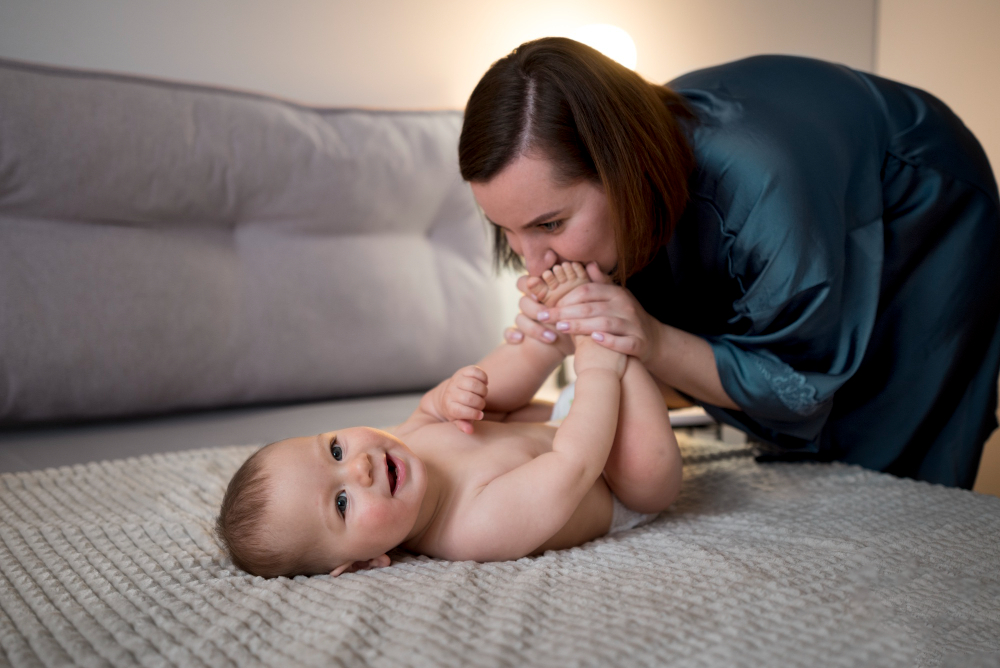Introduction to Newborn Reflexes
Newborn reflexes are natural movements that babies show soon after birth. These actions, called primitive reflexes, help doctors check a baby’s health. In the United States, parents often hear about newborn reflexes during early checkups. Because these reflexes are important for baby reflex development, knowing about them can help you feel more confident as a parent. For example, you may notice your baby grasping your finger or turning their head when touched. These are normal signs of healthy growth.
Common Types of Newborn Reflexes
Babies are born with several reflexes. Each one has a special purpose. Here are the most common types of newborn reflexes:
Most of these reflexes fade as your baby grows. If you wonder, “When do newborn reflexes disappear?”—it usually happens by 4 to 6 months of age.
Why Newborn Reflexes Are Important
Newborn reflexes show that a baby’s brain and nerves are working well. For instance, doctors use these reflexes to check for healthy baby reflex development. If a reflex is missing or lasts too long, it may signal a problem. However, most babies show these reflexes naturally. Because of this, parents can feel reassured when they see these movements. Reflexes also help babies eat, move, and stay safe in their early days.
How Pediatricians Assess Reflexes
Pediatricians check newborn reflexes during regular visits. They gently touch or move your baby to see how they respond. For example, a doctor may tap your baby’s cheek to check the rooting reflex. Or, they may place a finger in your baby’s hand to test the grasp reflex. These tests are quick and safe. In addition, doctors use these checks to spot any early signs of nerve or muscle problems. According to the CDC, regular exams help track your baby’s growth and development.
When to Seek Medical Advice
Most newborn reflexes are normal. Still, you should talk to your doctor if you notice:
Because early care can help, always share your concerns with your pediatrician. They can guide you on what is normal and what may need more tests.
Tips for Parents on Observing Reflexes
Watching your baby’s reflexes can be fun and helpful. Here are some tips:
Additionally, do not worry if you miss a reflex. Doctors are trained to check these during visits.
Conclusion
Newborn reflexes are a key part of your baby’s early life. They help doctors check for healthy growth and baby reflex development. While most reflexes are normal, you should consult a pediatrician for personalized guidance if you have any concerns. Early support can make a big difference for your child.
